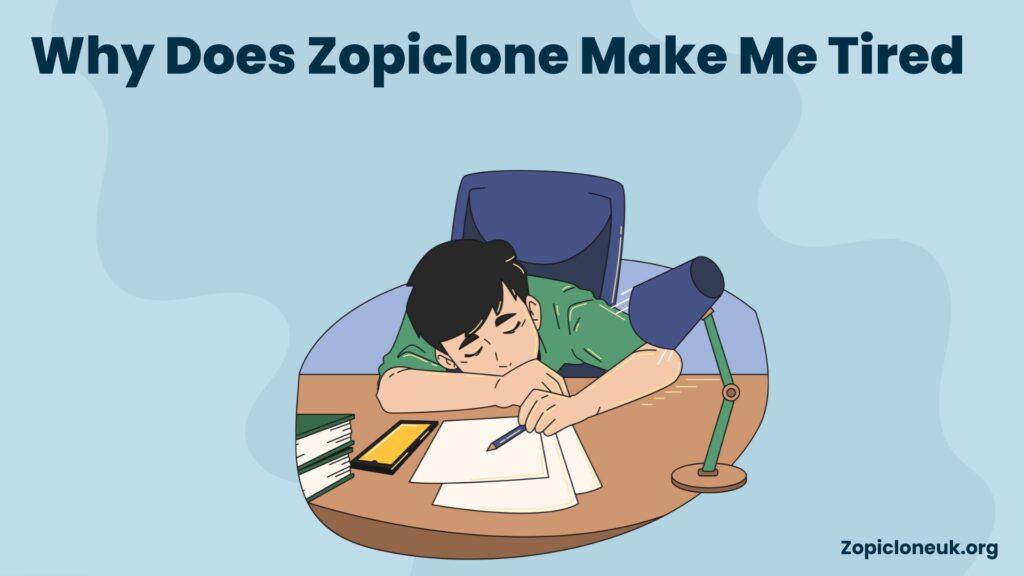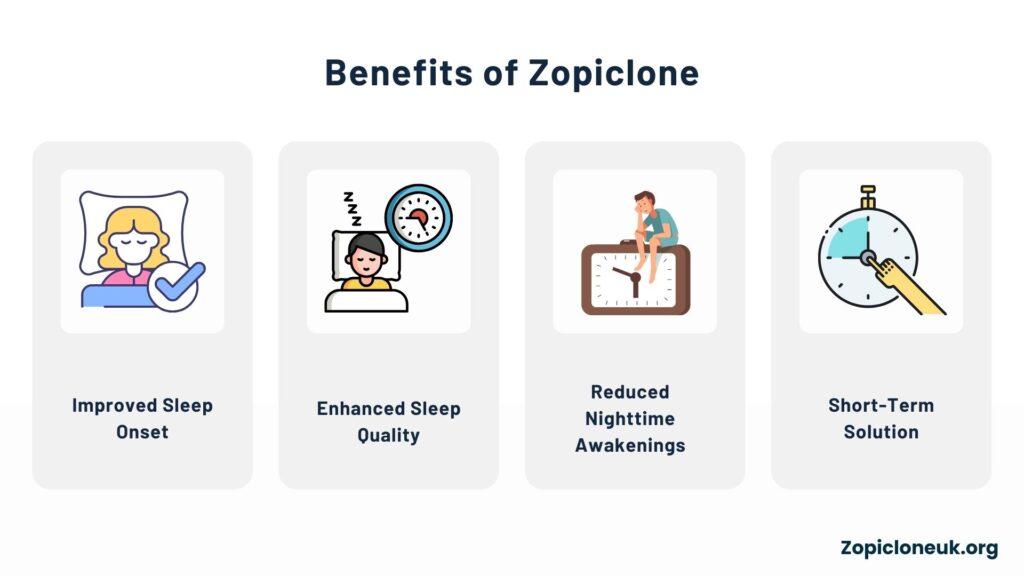
Why Does Zopiclone Make Me Tired:- Zopiclone, known by its brand names Imovane and Zimovane, is a non-benzodiazepine hypnotic agent used primarily for short-term insomnia in adults. It is well-known for its ability to induce sleepiness and improve sleep quality, making it a popular choice among those struggling with sleep disorders. But why exactly does Zopiclone make you tired? This blog delves into the mechanisms of action, the benefits, potential side effects, and other critical aspects of this medication to provide a thorough understanding.
The Mechanism of Action
Zopiclone works by interacting with the gamma-aminobutyric acid (GABA) receptors in the brain. GABA is a neurotransmitter that plays a key role in reducing neuronal excitability throughout the nervous system. By enhancing the effect of GABA, Zopiclone helps to calm the brain, reduce anxiety, and promote sleep. This interaction is similar to that of benzodiazepines, but Zopiclone is classified as a non-benzodiazepine hypnotic, which means it is chemically distinct and generally considered to have a lower potential for dependence and abuse.
Benefits of Zopiclone
One of the primary benefits of Zopiclone is its ability to help people fall asleep more quickly. This is particularly beneficial for those who suffer from sleep onset insomnia, where difficulty falling asleep is the main issue. Additionally, Zopiclone can help reduce the number of awakenings during the night and increase overall sleep duration. This results in better sleep quality and improved daytime functioning.

Usage and Dosage
Zopiclone is typically prescribed for short-term use, usually not exceeding four weeks, to prevent the development of tolerance and dependence. The standard dosage for adults is 7.5 mg taken right before bedtime. For elderly patients or those with liver or kidney problems, a lower dose of 3.75 mg may be recommended to minimize the risk of side effects. It’s crucial to follow the prescribing doctor’s instructions and not to exceed the recommended dose.
Potential Side Effects
While Zopiclone is generally well-tolerated, it can cause side effects in some individuals. Common side effects include a bitter or metallic taste in the mouth, dry mouth, and dizziness. More serious side effects, although rare, can include memory problems, hallucinations, and severe allergic reactions. Long-term use of Zopiclone can also lead to tolerance, dependence, and withdrawal symptoms upon discontinuation.
Precautions and Interactions
Before taking Zopiclone, it is important to inform your doctor about any other medications you are taking, as well as any existing health conditions. Zopiclone can interact with other central nervous system depressants, such as alcohol, opioids, and certain antidepressants, which can enhance its sedative effects and increase the risk of side effects. Additionally, patients with a history of substance abuse or mental health disorders should use Zopiclone with caution.
Why Zopiclone Causes Tiredness
The primary reason Zopiclone makes you tired is its effect on the GABA receptors in the brain. By enhancing the inhibitory action of GABA, Zopiclone effectively slows down brain activity, leading to sedation and sleepiness. This is the desired therapeutic effect for individuals with insomnia, as it helps them achieve a restful night’s sleep. However, this sedative effect can also cause drowsiness and fatigue during the day, especially if the medication is not fully metabolized and eliminated from the body by the time you wake up.
Managing Daytime Drowsiness
To minimize daytime drowsiness, it is important to take Zopiclone exactly as prescribed and at the right time. Taking the medication right before bed can help ensure that its sedative effects are strongest when you need to sleep. Additionally, avoiding alcohol and other CNS depressants while taking Zopiclone can reduce the risk of excessive sedation. If you experience persistent daytime drowsiness, it is important to consult your doctor, as the dosage may need to be adjusted or an alternative treatment considered.
Long-Term Use and Dependence
Although Zopiclone is effective for short-term treatment, its use over extended periods can lead to dependence and tolerance. Dependence means that your body becomes used to the presence of the drug, and you may experience withdrawal symptoms if you suddenly stop taking it. Tolerance means that over time, you may need higher doses of the medication to achieve the same effect, which increases the risk of side effects and dependency. For these reasons, doctors typically prescribe Zopiclone for no longer than four weeks.
Alternatives to Zopiclone
For those who cannot tolerate Zopiclone or who are concerned about its long-term effects, there are alternative treatments for insomnia. Cognitive-behavioral therapy for insomnia (CBT-I) is an effective non-pharmacological treatment that focuses on changing sleep habits and behaviors. Other medications, such as melatonin agonists or certain antidepressants, may also be used to treat insomnia. It is important to discuss all available options with your healthcare provider to find the most appropriate treatment for your needs.
FAQ
What is Zopiclone used for?
Zopiclone is used for the short-term treatment of insomnia. It helps people fall asleep more quickly and improves overall sleep quality by reducing nighttime awakenings.
How does Zopiclone make you tired?
Zopiclone enhances the effect of the neurotransmitter GABA in the brain, which reduces neuronal excitability and promotes sedation and sleepiness.
Can I take Zopiclone long-term?
Zopiclone is generally prescribed for short-term use, usually not exceeding four weeks, to prevent the development of tolerance and dependence.
What are the common side effects of Zopiclone?
Common side effects of Zopiclone include a bitter or metallic taste in the mouth, dry mouth, and dizziness. More serious side effects can include memory problems and hallucinations.
Can I drink alcohol while taking Zopiclone?
It is not recommended to drink alcohol while taking Zopiclone, as it can enhance the sedative effects and increase the risk of side effects.
Conclusion
Zopiclone is a widely used medication for the short-term treatment of insomnia. Its primary action is to enhance the effect of the neurotransmitter GABA, which leads to sedation and improved sleep quality. While it is effective in making you tired and helping you sleep, it is important to use it as prescribed and be aware of potential side effects and risks associated with long-term use. Understanding how Zopiclone works and its effects on your body can help you use this medication safely and effectively.
Author Details




Medical content by qualified psychiatrists
Our editorial policy

Zopiclone precautions Read our potential abuse notice

Looking for a seller? Locate the best Zopiclone vendor






